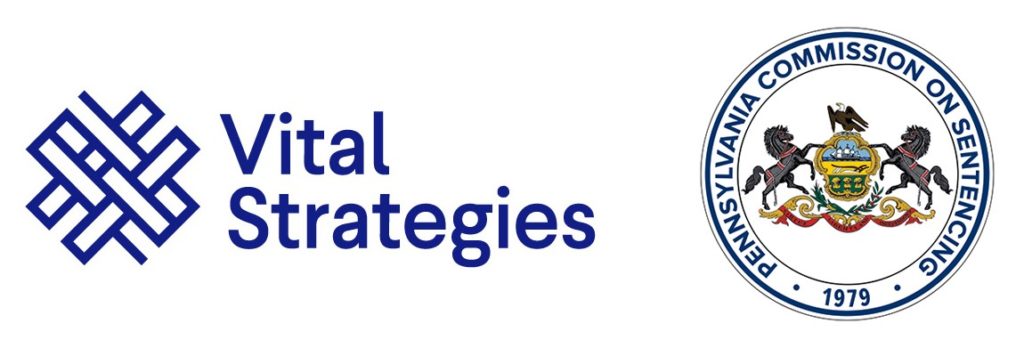
Substance Use is a Major Driver of Probation Revocation and Resentencing in Pennsylvania
October 6, 2020 – The Pennsylvania Commission on Sentencing released a new report examining substance use as a driver of probation revocation and resentencing in the Commonwealth. The report found that nearly one third (up to 30.5%) of all resentencing events for people sentenced to community supervision are attributable to substance use, costing the Commonwealth millions of dollars every year. The report recommends less reliance on incarceration as a response to substance-related violations by individuals under supervision and strengthening access to evidence-based treatment.
“This report shows that a greater emphasis needs to be placed on providing evidence-based drug treatment for those sentenced to community supervision in order to provide better outcomes for offenders and to avoid costly incarceration,” explained State Representative Todd Stephens, Chairman of the Pennsylvania Commission on Sentencing.
“Because many probationers with substance abuse issues will struggle with abstinence and treatment requirements, they are more likely to have technical violations than violations for committing new offenses. Taking into account treatment needs, these technical violations should be met with responses that are graduated and appropriately matched to the severity of the violation. Effective responses also require that localities have appropriate resources needed to support evidence-based treatment practices.” Judge Tamara Bernstein, Vice Chair of the Pennsylvania Commission on Sentencing
Technical violations, rather than new criminal offenses, account for approximately 80% of resentencing events. Technical violations are a violation of the rules of supervision such as missing an appointment or having a positive drug test. Often, someone may have multiple technical violations before their probation is revoked and they are resentenced. The report found that up to half of all technical violations leading to resentencing are related to substance use. Substance-involved individuals are also more likely to be resentenced, including for technical violations, according to the report. The most common outcome of resentencing is incarceration in county jail, potentially interrupting treatment and putting people at increased risk of fatal overdose.
Created by the Pennsylvania General Assembly in 1978, the Commission is responsible for creating statewide sentencing policy through the adoption of guidelines, including guidelines on sentencing and resentencing. To produce its report, the Commission analyzed over 65,000 cases from 47 counties, with funding support from Vital Strategies to conduct this research.
Substance-related violations of supervision among individuals sentenced in 2016-2017 were estimated to be associated with up to 1.3 million days of additional justice supervision statewide over the study period of 29 months, with much of this burden borne by counties. This is the equivalent of over 3,500 years of additional criminal justice supervision, primarily probation (~75%) but also jail and prison incarceration.
“This report makes clear how substance-related and other technical violations are a substantial driver of incarceration in Pennsylvania and highlights the unique challenges faced by individuals with substance use disorder under community supervision,” said Kate Boulton, Legal Technical Advisor at Vital Strategies. “The findings invite a consideration of how punitive responses to drug use by individuals on probation may not promote positive health or supervision outcomes.”
The report is an important addition to the literature on the role of substance use in probation and is relevant to ongoing discussion and debate in Pennsylvania about the role of community supervision. .
About the Pennsylvania Commission on Sentencing
The Pennsylvania Commission on Sentencing is a legislative agency charged to create and maintain a consistent and rational statewide sentencing policy through the adoption of sentencing and resentencing guidelines that promote fairer and more uniform sentencing throughout the Commonwealth. The Commission serves as a clearinghouse and information center for the collection, preparation, and dissemination of information on Commonwealth sentencing practices, and with assisting courts and agencies in the development, maintenance, and coordination of sound sentencing policies.
About Vital Strategies
Vital Strategies is a global health organization that believes every person should be protected by a strong public health system. We work with governments and civil society in 73 countries to design and implement evidence-based strategies that tackle their most pressing public health problems. Our goal is to see governments adopt promising interventions at scale as rapidly as possible.
To find out more, please visit vstrategystage.wpengine.com or Twitter @VitalStrat.
About Vital Strategies’ Overdose Prevention Program
In November 2018, Bloomberg Philanthropies announced a $50 million investment to address the country’s overdose crisis. The initiative—a first-of-its-kind partnership between Vital Strategies, Pew Charitable Trusts, CDC Foundation, and Johns Hopkins Bloomberg School of Public Health—is helping up to 10 states implement solutions over three years to strengthen and scale up evidence-based, data-driven interventions to reduce risks of overdose and save lives.
Media Contacts
Tony Newman: Vital Strategies
tnewman@vitalstrategies.org; 646-335-5384
Mark Bergstrom: Executive Director of the Pennsylvania Commission on Sentencing
Mhb105@psu.edu; 814.863.4368